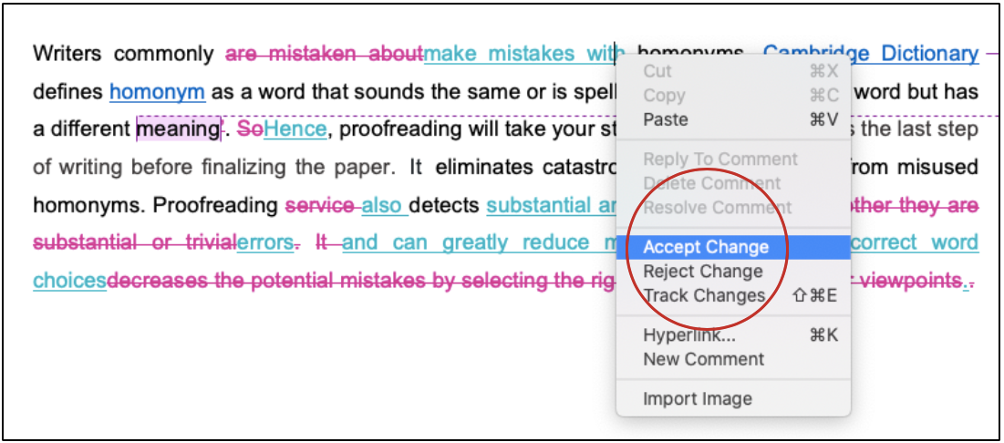Scholars must write a research proposal to receive funding to support their projects and provide their graduate students with the needed funds to pursue post-graduate studies. Even you, as a student, may have to write one before you begin your thesis or dissertation. Whatever the objective is, one issue remains the most relevant.

A research proposal addresses the following questions.
What are you going to investigate?
Why is your research critical in your field?
How do you conduct your research?
This article intends to provide you with some helpful tips for writing a research proposal. On top of that, most proposals must include a cover page, introduction, literature review, research methodology and statistical analysis, and references. Even though some variations exist, the overall objective is frequently the same.
Scholars are expected to write a research proposal to receive funding to support their projects and provide their graduate students with the needed funds to pursue post-graduate studies. Even you, as a student, may have to write one before you begin your thesis or dissertation. Whatever the objective is, one issue remains the most relevant. It would help if you convinced somebody or a panel that what you are proposing has merit and is worthwhile pursuing. The following points are critical for a successful research proposal.
You must persuade the reader that you have an engaging, original, and relevant project.
You must prove that you have enough background in the field to conduct the study.
You must depict that you have meticulously thought about your methodology, the statistical tools, and how you implement and conduct your research.
You must justify that your project is feasible and comply with the objective of the program or institution.
It all depends. The length considerable varies based on the study field. Suppose you have a bachelor’s or master’s thesis proposal. In that case, it can be just a few pages. Nevertheless, proposals for Ph.D. dissertations and research funding must be lengthy and include many details about the research you plan to conduct. Even though you pen the proposal before starting your research, it is almost a template of your thesis or dissertation. Evidently, it would not have any results and discussion. A research proposal for a thesis or dissertation should consist of the following parts:
Similar to your dissertation or thesis, the proposal’s title page must contain the title of the project, your name, your advisor’s name, and your institution or department’s name. It is usually better to double-check with the department or funding institution to see whether they have specific formatting issues.
Suppose your proposal is exceedingly lengthy. In that case, including an abstract might be worthwhile. On top of that, you should include a table of content for readers so they can quickly go through your research proposal.
As your proposal should catch the eye of a reader at first glance, it must explicitly elaborate on what you want to conduct and why you want to run it. Therefore, it must introduce the topic, present the background information, and outline the research question and problem statement. It also must have detailed information on who is targeted (for example, scientists, politicians, educators, or business people), what is already known about the problem, what gaps exist in the current situation, what novel information your research can provide, and is your research feasible.
Depicting that you have a reasonable amount of knowledge on your research proposal is beyond critical. Thanks to a solid literature review, the readers would be convinced that your project had merit. Moreover, it is your genuine chance to display that you do not reiterate what other people have said. Instead, you have presented new insight into an existing or novel subject. Equally critical is disclosing how your research proposal adds to the extant discussions. Therefore, you must contrast the primary theories, methodologies, debates, and controversies. Then, you should critically assess the pros and cons of varied approaches. What you should finally pursue is to demonstrate where your research fits. To that end, you must either challenge or orchestrate the other studies.
This section should cover your overall theory and portray what practical steps to take to address your questions raised in the research proposal. It would be best to inform the readers whether your research is qualitative or quantitative and will have original data or use primary or secondary sources. More importantly, you must explain what kind of statistical design you have in your study. Your study might have a descriptive, inferential, correlational, or experimental design. You must also explicitly define your sample and population. Moreover, the readers must learn how you have sampled (random sampling, stratified sampling, case studies, cohort studies, and so on).
Specifying how and when you will collect data is critical, too. Some studies use surveys; some are actual experiments. Please ensure that the readers know what type of study you have. You must also state the tools to be used to analyze research data. On the practical side, how much time is needed to gather data, how can you access participants or sources, and any potential obstacles must be stated. You have to justify the methodologies used. Merely stating what you have used as methodological tools may not convince the readers.
Suppose you have prepared an excellent research proposal to submit. However, you have not addressed how your research's expected output can address practical problems. Then, your research would have a minimal impact. You must state the potential implications of your research because your study may improve an already existing method or offer a novel one. It can reinforce a theory or refute it. Moreover, it can challenge conventional assumptions. More profoundly, it can be a foundation for further research.
It would help if you listed all the references you have used. Please ensure that you have given proper citations. Checking with the department or institution might help on how to cite the references accurately.
For most research proposals, you must state the activities and their times. You must be realistic and calculate how much time is needed for each step. Checking the timetables of already finished research may help if available.
When you apply for research funding, you must present a detailed budget explaining how much each project part will cost. For each relevant item, include the cost, why you need it, and how you have calculated it. Your budget must contain travel and material costs. If you plan to hire a research assistant(s), their salary should also be part of the costs.
Best Edit & Proof expert editors and proofreaders focus on offering papers with proper tone, content, and style of academic writing, and also provide an upscale editing and proofreading service for you. If you consider our pieces of advice, you will witness a notable increase in the chance for your research manuscript to be accepted by the publishers. We work together as an academic writing style guide by bestowing subject-area editing and proofreading around several categorized writing styles. With the group of our expert editors, you will always find us all set to help you identify the tone and style that your manuscript needs to get a nod from the publishers.

You can also avail of our assistance if you are looking for editors who can format your manuscript, or just check on the particular styles for the formatting task as per the guidelines provided to you, e.g., APA, MLA, or Chicago/Turabian styles. Best Edit & Proof editors and proofreaders provide all sorts of academic writing help, including editing and proofreading services, using our user-friendly website, and a streamlined ordering process.
Visit our order page if you want our subject-area editors or language experts to work on your manuscript to improve its tone and style and give it a perfect academic tone and style through proper editing and proofreading. The process of submitting a paper is very easy and quick. Click here to find out how it works.
Our pricing is based on the type of service you avail of here, be it editing or proofreading. We charge on the basis of the word count of your manuscript that you submit for editing and proofreading and the turnaround time it takes to get it done. If you want to get an instant price quote for your project, copy and paste your document or enter your word count into our pricing calculator.
Contact us to get support with academic editing and proofreading. We have a 24/7 active live chat mode to offer you direct support along with qualified editors to refine and furbish your manuscript.
Follow us on Twitter, LinkedIn, Facebook, Instagram, and Medium.
For more posts, click here.
This article explains how to write a research proposal for a dissertation or thesis. To give you an opportunity to practice proofreading, we have left a few spelling, punctuation, or grammatical errors in the text. See if you can spot them! If you spot the errors correctly, you will be entitled to a 10% discount.
How to Determine Variability in a Dataset
14.10.2023
Population vs Sample | Sampling Methods for a Dissertation
14.01.2023
7 Issues to Avoid That may Dent the Quality of Thesis Writing
18.12.2022
How to Ensure the Quality of Academic Writing in a Thesis and Dissertation?
04.12.2022
How to Define Population and Sample in a Dissertation?
03.12.2022
How can You Establish Experimental Design in Your Dissertation?
12.11.2022
How Can You Decide on Tense Usage in Your Dissertation?
04.11.2022
How Can You Write an Abstract for Your Dissertation?
30.10.2022
How to Build Research Methods for Your Dissertation
14.10.2022
How to Build a Strong Hypothesis for Your Dissertation
13.10.2022

A dissertation defense is one of the critical milestones one needs to cross to obtain a doctoral degree. It is a process that helps a candidate proffer their research knowledge to an audience of accomplished academics. Thus, preparing to defend a dissertation can feel distressing and burdensome, for one needs to tick several checkboxes at once. But, with the right set of steps and adequate practice, candidates can successfully overcome this unease.
Continue Reading
Researchers develop theories to explain phenomena, build connections, and make educated guesses. Therefore, you illustrate the existing ideas supporting your dissertation or thesis in a theoretical framework, depicting that your work has a solid foundation.
Continue Reading
After gathering and analyzing your data, next is penning the results. You report the primary findings of your study in this section. The most critical issue is that reporting your results must be concise and pursue a logical order.
Continue Reading
Your thesis or dissertation ends with the conclusion. Its primary purposes include addressing the main research question, summarizing and echoing the study, presenting future studies recommendations, and depicting your contribution's novel knowledge.
Continue Reading
When you deal with experiments, you investigate the causal relationship between variables. What you fundamentally do is manipulate one or more than one independent variable (x) to determine their effect on dependent variables (y).
Continue Reading